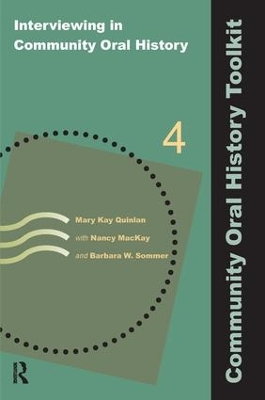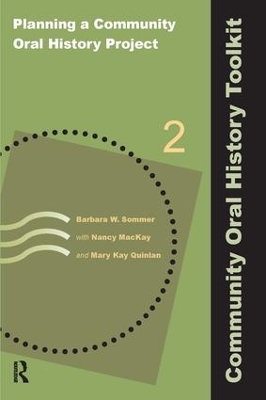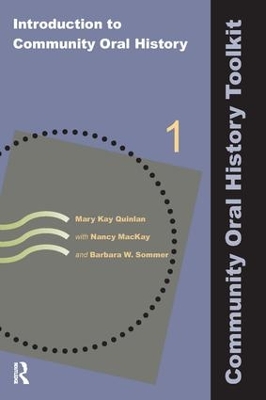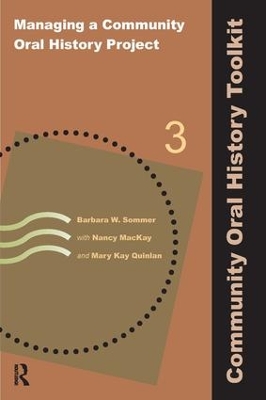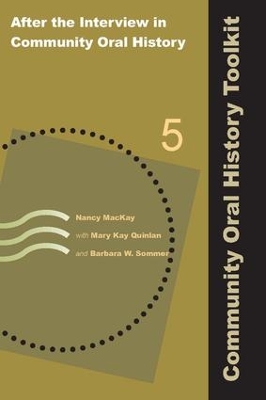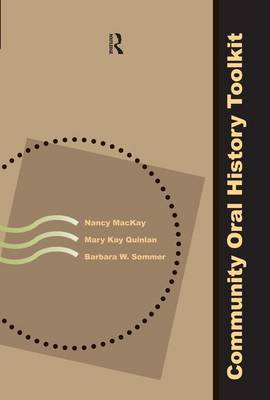Community Oral History Toolkit
6 total works
Interviewing in Community Oral History
by Mary Kay Quinlan, Nancy MacKay, and Barbara W Sommer
Planning a Community Oral History Project
by Nancy MacKay, Mary Kay Quinlan, and Barbara W Sommer
Introduction to Community Oral History
by Mary Kay Quinlan, Nancy MacKay, and Barbara W Sommer
Managing a Community Oral History Project
by Nancy MacKay, Mary Kay Quinlan, and Barbara W Sommer
After the Interview in Community Oral History
by Nancy MacKay, Mary Kay Quinlan, and Barbara W Sommer
Community Oral History Toolkit
by Nancy MacKay, Mary Kay Quinlan, and Barbara W Sommer
This five-volume set is the definitive guide to all aspects of conducting successful community oral history projects that conform to best practices in the field. What are the fundamental principles that make one oral history project fly and another falter? Community Oral History Toolkit examines theoretical foundations for oral history practice and offers applicable tools and guidelines that you can mold to your project's specific needs. The wealth of existing literature on oral history methodology is designed for academic research; the Toolkit, however, is specifically geared toward community groups unaffiliated with large institutions such as universities. Volumes include an introduction to community oral history, planning and managing community oral history projects, interviewing subjects, and processing the interviews. Volumes in the set are also available separately.
Check for downloadable forms under the e-resources tab.
